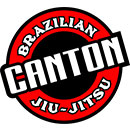Get IN Touch
Contact Us
Try a Free 1-Day Pass
Come improve your Jiu-Jitsu at Canton BJJ.
Brazilian jiu-jitsu is a martial art and combat sport that focuses on grappling. BJJ teaches a smaller person how to defend himself against a larger stronger adversary by using leverage and proper technique. Taking the fight to the ground then allows you to apply joint-locks and chokeholds to defeat the opponent. BJJ training can be used for sport grappling tournaments (gi and no-gi) and mixed martial arts (MMA) competition or self-defense.
Gym Hours
Monday 5:15-9:00PM
Tuesday 10:00-11:00AM / 6:00-9:00PM
Wednesday 5:15-9:00PM
Thursday 10:00-11:00AM / 6:00-9:00PM
Friday 10:00-11:00AM
Saturday 10:00AM-12:30PM
Sunday 10:00AM-12:00PM
F.A.Q.
What is Brazilian Jiu Jitsu (BJJ)?
Brazilian jiu jitsu is a sport, self-defense system, and a fitness program. It is considered to be the most practical and effective self-defense system in the world. Bjj relies on leverage and technique, rather than strength and size. This allows you to defend yourself against much bigger, stronger attackers. As a result, BJJ is a great sport for everyone – including women and kids.
Who can/should do BJJ?
Almost everyone should be training Bjj. Brazilian Jiu Jitsu has numerous benefits: losing weight, building confidence, learning self defense, anti-bullying, stress relief and many more.
Do I need to be strong, flexible, and in good shape?
No. By practicing jiu jitsu, you will definitely improve your strength, flexibility, conditioning, balance, coordination, and more, but you do not need to have those traits to begin with. However it is recommended that anyone who starts any strenuous activity, including Brazilian jiu jitsu, receive a physical examination to ensure they can safely participate in the program’s activities.
Am I too young or old to do BJJ?
Bjj can be practiced by almost anyone. I have seen kids as young as 2 and adults up in their 80’s train and enjoy the benefits of Bjj.
How many times should I train per week?
We recommend everyone train a minimum of 2 days per week.
What do I wear to jiu jitsu practice?
You will wear a bjj uniform which is called a gi or kimono. Attire for the nogi and/or wrestling class consist of a rashguard top and compression pants and/or board shorts.
How should I prepare for my first class?
Bring your attire (gi or nogi), flip flops, and come ready to learn and have fun! If you don’t have a gi, you can wear athletic style clothing for your trial classes. Once you sign up, you will get a gi.
Do I have to compete?
No. The majority of people who learn and train jiu jitsu do not compete. Of course, competition can be a reason to set goals and a great way to challenge and test yourself. We encourage anyone who wants to compete to do so, but there is no expectation or requirement to do it. Come learn, get in shape, and enjoy the sport. You can decide later if you’d like to compete.
How long before I can compete?
Decision is ultimately up to the professor. Typically anywhere from a couple months to 6 months of consistent training would permit most students the opportunity to compete.
What are the belt rankings in BJJ?
Adult belts consist of White, Blue, Purple, Brown, Black, Red/Black, Red/White, & Red.
How long does it take to get your black belt?
On average 8-12 years of consistent training.
Is BJJ safe?
Jiu jitsu is a very safe sport if trained in a controlled environment. At Canton Bjj safety is our top priority. Our mat etiquette, class structure, and instruction methods all ensure safety first.
Is BJJ good exercise?
Brazilian jiu-jitsu is one of the best workouts you can get, and it provides far better results than a typical aerobic workout. It is also much more fun and interactive than most exercise programs, so you end up working out more and harder. Many people practice it primarily for the health/exercise benefits, which increase muscle tone and reduce body fat while improving your balance, coordination, cardiovascular capacity, and muscular endurance.
